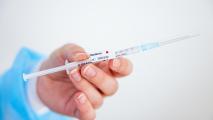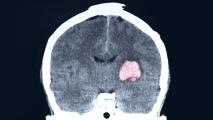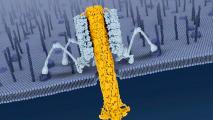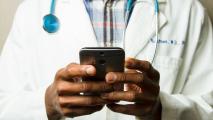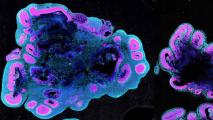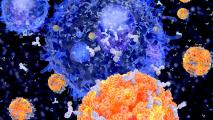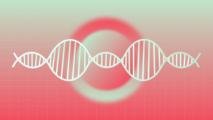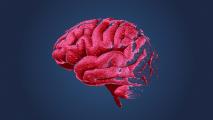
Biotech
Human history has been all but defined by death and disease, plague and pandemic. Advancements in 20th century medicine changed all of that. Now advancements in 21st century medicine promise to go even further. Could we bring about an end to disease? Reverse aging? Give hearing to the deaf and sight to the blind? The answer may be yes. And soon.
More
All adults in the US are now eligible for COVID-19 vaccines
In the U.S., anyone over the age of 16 is now eligible for COVID-19 vaccines — a major milestone along the path to herd immunity.
Scientists may have figured out how to fight prion disease
Researchers believe they have found a spot on a mutated prion protein that can lead to brain-spongifying disease.
Food supplement appears to “cure” malnutrition in children
A food supplement designed to cure malnutrition in children doesn’t just deliver calories — it also helps promote a healthy gut microbiome.
Color-changing gold tattoo can monitor your health
Researchers have found a way to use gold nanoparticles to help diagnose medical problems by embedding them in an invisible tattoo.
A modified herpes virus can fight brain cancer in children
In a small clinical trial, using herpes viruses modified to only infect tumors — oncolytic virus therapy — more than doubled the life expectancy of children with aggressive brain tumors.
Inhaled asthma drug accelerates COVID-19 recovery at home
Budesonide — a cheap, inhaled asthma drug that can be self-administered — appears to shorten at-risk COVID-19 patients’ recovery times.
Bacteria nanomachines fire smart missiles that could replace antibiotics
Researchers want to use bacteria-made nanomachines called tailocins to help fight enemy bacteria strains in the human body.
Can a blood test help diagnose depression?
An objective blood test could help provide a clearer understanding of the patient’s mental health.
Hologram pizzeria brings virtual happy hour to a new level
Virgin Media’s hologram dining experience, Two Hearts Pizzeria, let people feel like they were sharing a meal with loved ones located in another city.
How gratitude makes you more attractive
New research shows that having an attitude of gratitude is key to healthy relationships, and it can virally impact society.
Phone cameras can now measure your pulse and breathing
A team of researchers has developed an algorithm to measure pulse and respiration rate during a telehealth appointment using your device’s camera.
New oral insulin tech replaces needles with nanoparticles
If the success of a new oral insulin delivery system in rats translates to people, it could entice more diabetics to pursue insulin therapy.
Game triggers auditory hallucinations in mice and people
An experimental game that triggers auditory hallucinations in both mice and humans could lead to new treatments for schizophrenia.
A single gene turns on humans' rapid brain growth
Researchers have looked at gene expression in human brain organoids compared to other apes to discover the genetic mechanism crucial to triggering the human brain’s rapid growth.
New approach for mRNA HIV vaccine passes first human trial
There is currently no HIV vaccine, but a new technique which produced specific immunity cells in humans may pave the way to one.
Penn scientists correct genetic blindness with a single injection into the eye
Antisense oligonucleotide therapy uses small molecules to alter RNA. Researchers have now used those molecules to alleviate a genetic form of blindness.
Nobel prize-winning chemist helps invent synthetic mucus
Mucins, the long proteins in mucus, have an array of bacteria-fighting properties. These artificial mucins can act like the real thing.
How scientists finally got gene therapy to work
Gene therapy shows promise for treating diseases and the longstanding mysteries of medical science. But what is gene therapy and how does it work?
Injectable “glue” helps heal traumatic brain injury in rats
By injecting a “brain glue” into rats, researchers were able to speed up their recovery after a traumatic brain injury.
A major Huntington’s trial has failed. Here’s why there is still hope.
A simple genetic test can determine a person’s fate for one of the worst diseases on the planet. But research offers new hope for Huntington’s disease.
Get inspired with the most innovative stories shaping the world around us.













